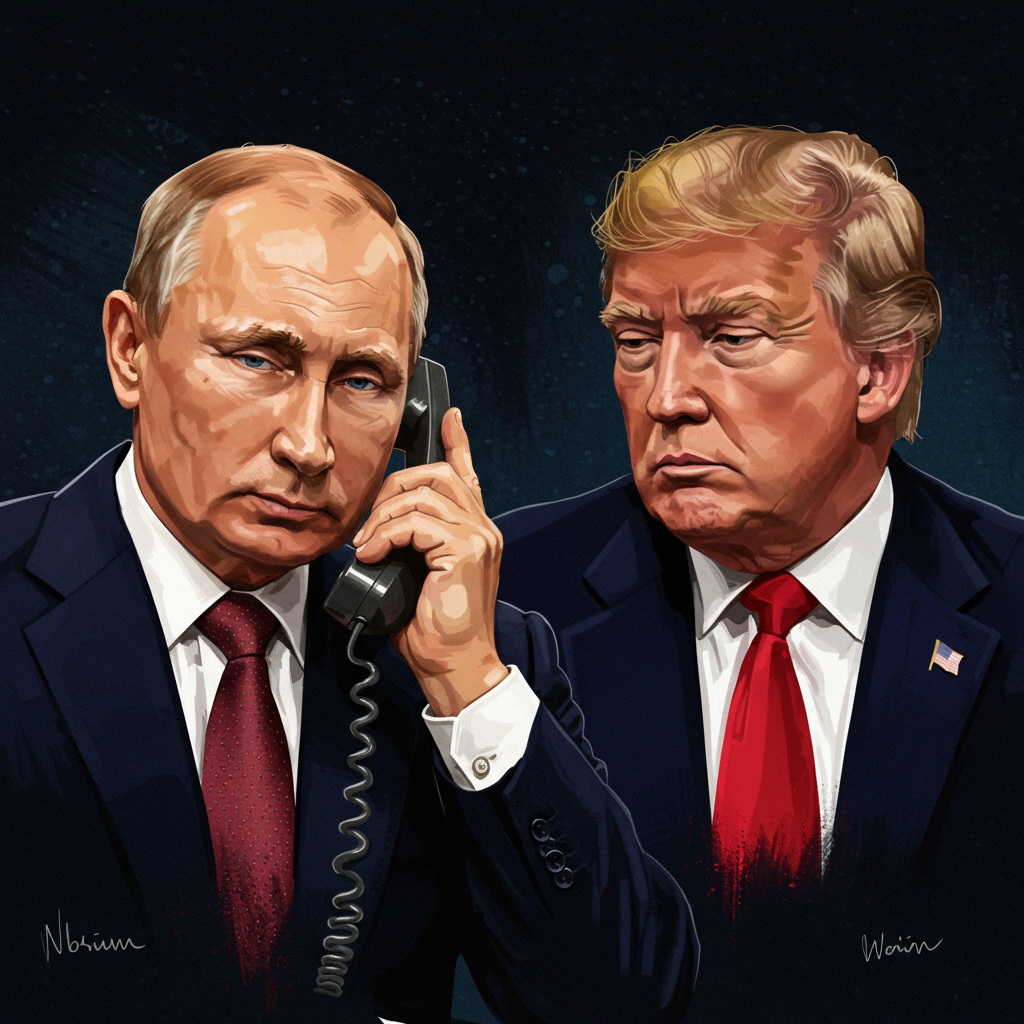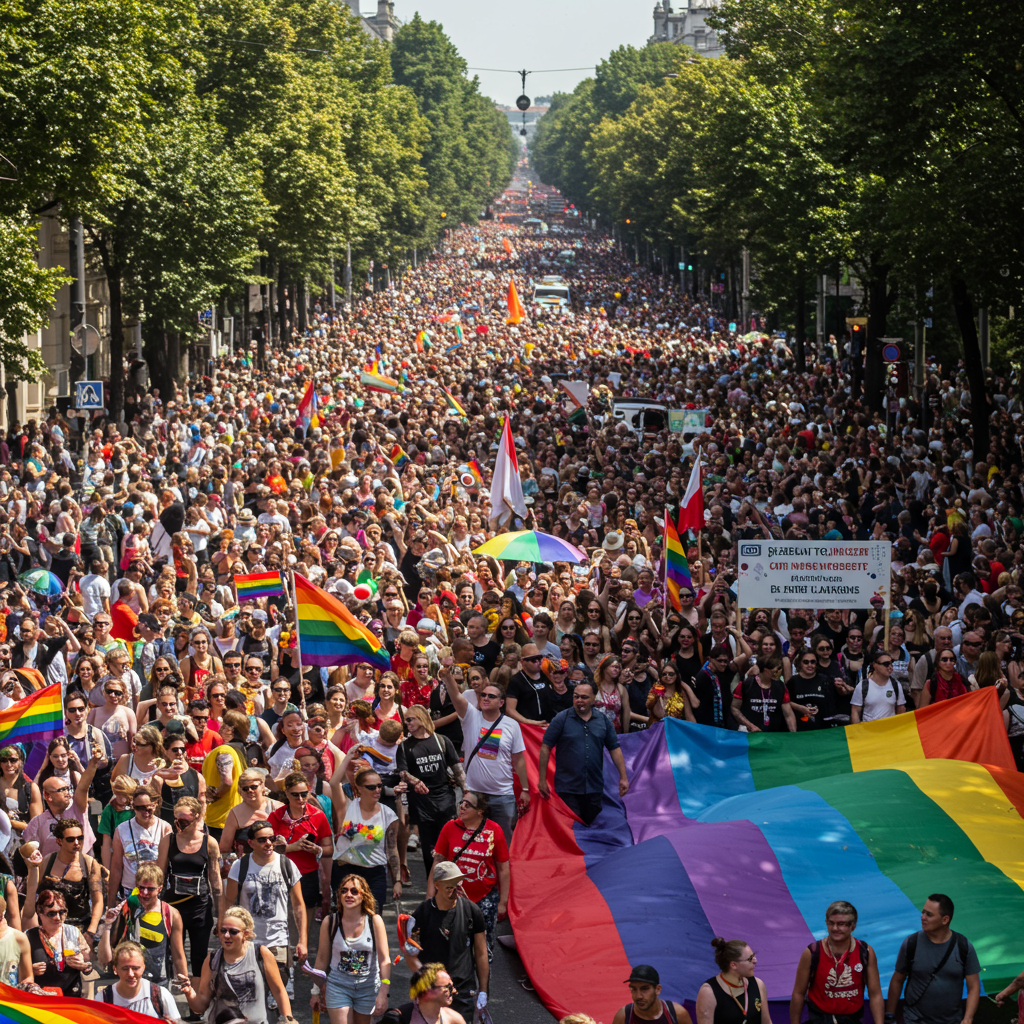Russian President Vladimir Putin recently conveyed an unwavering message to former U.S. President Donald Trump regarding the ongoing russia ukraine conflict. In a significant phone call on July 3, 2025, Putin reportedly told Trump that Moscow remains fully committed to its objectives and “will not back down” on its war aims in Ukraine. This communication came amidst complex geopolitical shifts, including a notable pause in certain US Ukraine aid shipments.
The hour-long conversation, marking the sixth interaction between the two leaders since Trump began his second term in January, primarily focused on the protracted conflict in Ukraine and the evolving situation in the Middle East. According to Kremlin aide Yuri Ushakov, Putin articulated Russia’s goal as eliminating the “root causes” that Moscow claims precipitated the current state of affairs.
Defining Russia’s Unyielding Objectives
Putin’s reference to “root causes” is central to the Kremlin’s narrative. It encapsulates the argument that Russia was compelled to launch its full-scale invasion in 2022 to counter the perceived threat of NATO expansion. Moscow posits that Ukraine potentially joining the Western military alliance could lead to the country being used as a platform for attacks against Russia. This justification, while a cornerstone of the Kremlin’s position, is vehemently rejected by Kyiv and its international allies, although it finds some support from Trump.
Despite this firm declaration of intent, Ushakov noted that Putin also expressed a “readiness” during the call to explore a “political and negotiated solution to the conflict.” This dual messaging highlights Russia’s public stance: asserting military determination while maintaining an openness, albeit conditional, to diplomatic pathways.
Readiness for Talks, But With Conditions
The notion of a negotiated solution is not new. Trump has previously attempted to mediate in the Ukraine war, even dispatching envoys to Moscow. However, these efforts have reportedly met with limited success due to what is described as Kremlin intransigency. Russia has consistently rejected proposals for an unconditional ceasefire, a measure that Ukraine has supported. The Kremlin’s readout following the call with Trump offered no indication of any shift in Putin’s long-standing position on a ceasefire.
Moscow insists that any substantive peace talks Ukraine involves must occur directly between Kyiv and Moscow. This preference for a bilateral format became evident in reports indicating that Russian negotiators had asked US diplomats to step out of the room during a meeting in Istanbul earlier in June. This suggests a deliberate effort by Moscow to potentially sideline Washington from direct peace negotiations, preferring to deal solely with Kyiv.
Trump’s Perspective and Mediation Attempts
Following his conversation with Putin, Donald Trump commented that he had made “no progress” towards securing a ceasefire in Ukraine. He also expressed dissatisfaction with the ongoing war, stating he was “not happy” about it. While the specific topic of the paused US Ukraine aid deliveries was reportedly not raised by either leader, Trump did bring up the imperative of achieving a swift end to the hostilities.
Despite Trump’s stated desire to see the conflict conclude quickly, his past attempts at mediation have yielded little tangible progress. The Kremlin’s consistent rejection of an unconditional ceasefire proposal underscores the significant hurdles in finding common ground. Although a face-to-face meeting was not discussed during the call, the two leaders agreed to maintain communication.
Context: The US Military Aid Pause
The timing of the Trump-Putin call was particularly significant. It occurred just one day after the Pentagon confirmed a decision to halt certain previously committed weapon shipments to Kyiv. These deliveries, which included critical air defense missiles and precision-guided artillery initially pledged under President Joe Biden’s administration, were paused reportedly due to concerns regarding the size of domestic US stockpiles and a decision to prioritize “America’s interests.”
This pause in military assistance coincided with an intensification of Russian attacks across Ukraine, resulting in civilian casualties and infrastructure damage. The decision to halt aid reportedly caught Kyiv and its partners off guard, prompting calls for clarity on the scope and duration of the pause. The move also drew sharp criticism and shock from members of the US Senate, with some experts warning that the reduction in support could embolden Russia.
Beyond Ukraine: Discussions on Iran and Diplomacy
Beyond the Russia Ukraine conflict, the call also touched upon other critical international issues, including the situation in the Middle East, particularly concerning Iran. The two leaders had previously spoken in mid-June, during which Putin had offered to mediate in the recent Iran-Israel tensions. Trump reportedly deflected this offer, redirecting the conversation back to Ukraine with the comment, “No, I don’t need help with Iran. I need help with you.”
During the July 3rd call, Putin reportedly emphasized the necessity of resolving all “disputes, disagreements and conflict situations” regarding Iran exclusively through political and diplomatic channels. This follows the US bombing of three Iranian nuclear sites the previous month, a move Russia had publicly condemned as unprovoked and illegal. The discussion highlights the broader geopolitical landscape influencing the dynamics between the US and Russia. The leaders also reportedly discussed cultural diplomacy, including exchanging films promoting “traditional values.”
Ukraine’s Response and Geopolitical Realignment
Meanwhile, on the same day as the Trump-Putin call, Ukrainian President Volodymyr Zelenskyy was meeting with European Union leaders in Denmark. Zelenskyy stressed that the uncertainty surrounding continued US Ukraine aid underscored the urgent need for Ukraine to strengthen cooperation and coordination through existing alliances like the EU and NATO, as well as in direct bilateral relations. He noted that only Putin makes decisions in Russia, implying that direct talks between leaders are essential for peace.
Ukraine’s aspirations for joining the NATO military alliance have been a significant point of contention and are part of the “root causes” narrative used by Russia. Donald Trump has reportedly “in effect nixed” Ukraine’s attempts to join NATO. Zelenskyy expressed hope that he would have the opportunity to speak with Trump soon, specifically to discuss the pause in weapons shipments.
In related developments highlighting Ukraine’s resilience and efforts amidst the aid uncertainty, Ukraine announced a major co-production deal with US company Swift Beat to produce hundreds of thousands of drones. Ukrainian forces also conducted a strike on Russia’s Energia factory in Lipetsk Oblast, a facility reportedly producing components for Russian missiles and drones, aiming to disrupt Moscow’s military capabilities.
Expert Analysis: Why Russia May Not Negotiate Now
Many experts analyzing the situation suggest that Putin’s current stance is fueled by a belief that Russia holds a military advantage in the conflict. Russian forces have continued to advance, particularly in eastern Ukraine, despite facing significant costs. This perceived path to military victory reduces Russia’s incentive to engage in serious negotiations that would require significant concessions.
The decision by the United States to pause some military aid is seen by some analysts as potentially reinforcing this perception in Moscow. Russia has consistently demanded that Ukraine’s Western partners cease military support as part of any potential ceasefire agreement. Experts and officials from the US, Europe, and Ukraine widely agree that providing Ukraine with substantially more robust support is crucial to altering Russia’s calculation and bringing Moscow genuinely to the negotiating table.
Some analysts interpret Putin’s continued claims of openness to peace talks as potentially aimed at appeasing Trump, given the former president’s stated investment in brokering a deal. However, without a significant shift in the military reality on the ground or increased pressure on Moscow, substantive progress in ending the Russia Ukraine conflict remains elusive.
Frequently Asked Questions
What was the main outcome of the recent Putin-Trump phone call regarding Ukraine?
The key outcome was Russian President Vladimir Putin stating unequivocally that Russia would not abandon its war objectives in Ukraine and intends to achieve its goals, despite also expressing openness to a negotiated solution. Former U.S. President Donald Trump reported making “no progress” on securing a ceasefire during the call.
How does Russia justify its war aims in Ukraine according to the article?
According to the article, Russia justifies its war aims by citing the need to eliminate the “root causes” of the conflict. This refers to the Kremlin’s argument that its invasion was necessary to prevent Ukraine from joining NATO and potentially being used by the Western alliance as a base to threaten Russia.
How might the pause in US military aid affect the conflict dynamics?
The article notes that the pause in certain U.S. military aid shipments coincided with intensified Russian attacks. Experts suggest this reduction in support could potentially embolden Russia and reinforce Moscow’s perception of having a military advantage, possibly decreasing its incentive for genuine peace negotiations.
Conclusion
The latest interaction between Vladimir Putin and Donald Trump underscores the deep impasse in resolving the Russia Ukraine conflict. Putin’s firm declaration that Russia will not yield on its war goals, framed by the narrative of addressing “root causes” tied to NATO, signals continued military determination from Moscow. While a readiness for negotiation is voiced, it is conditioned by Russia’s preferred format and reflects a stance perceived by many experts as one lacking incentive for compromise given current battlefield dynamics. The call, set against the backdrop of paused US Ukraine aid, highlights the complex interplay of military actions, diplomatic maneuvering, and shifting international support that continues to define this devastating war. For Ukraine, the focus intensifies on strengthening European ties and securing necessary resources amidst uncertainties in US policy.



